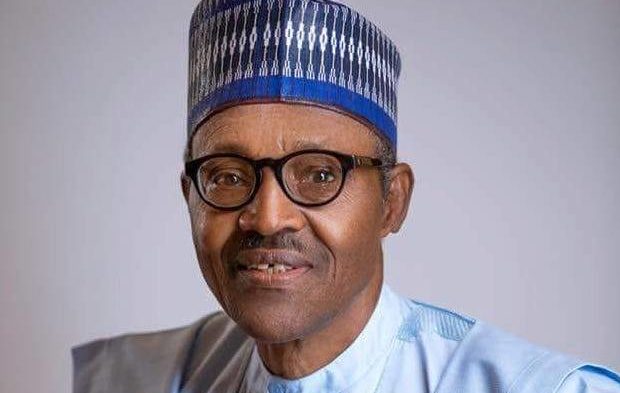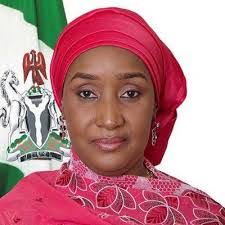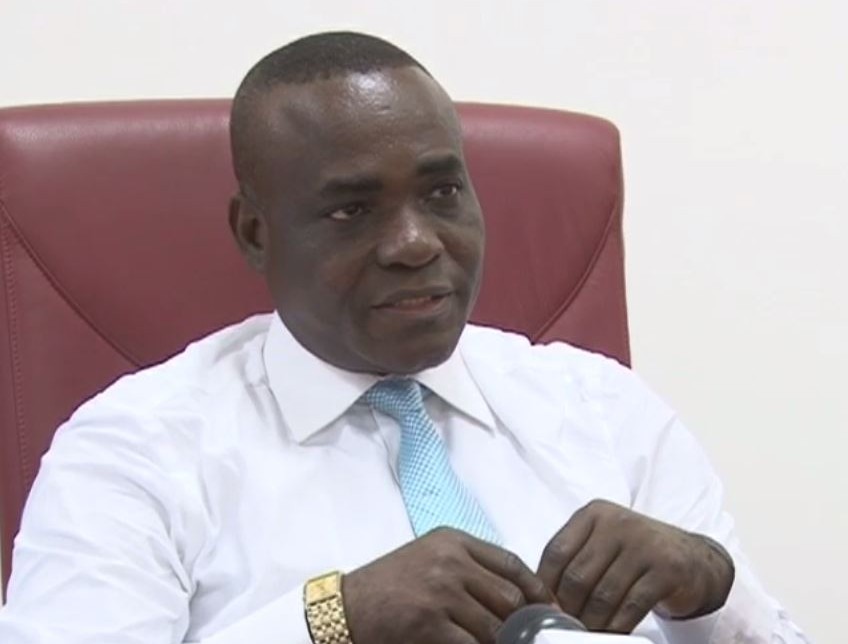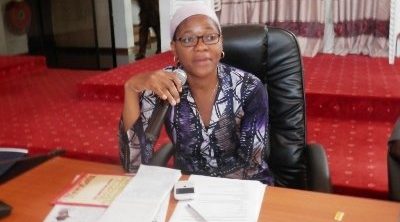The year 2018 is gone and 2019 is already on the clock.
At the end of each year, it is natural to reflect, to take stock of achievements and short comings of the year ended.
In doing so, one is able identify areas of strength and weakness and make amends.
Sometimes too, a second opinion helps in the reflection.
As it is with an individual, so it is also with organisations and governments. A review is always necessary to make progress.
As Nigerians prepare to go the polls in a general election to choose leaders who will steer the ship of the nation at least for the next four years, The Next Edition, spoke to a few people on how the government at the national level fared in their estimation.
Mr. Tive Denedo, a Media Content Creator, described it as a mixed bag. “On one hand many of the briefcase contractors have disappeared but we also achieved the unenviable position of being the poverty capital of the world. There are heavier fires of insurgency, self determination and herdsmen/ farmers clashes in many fronts. All these heightened insecurity to a new all high level. The disappearance of briefcase contractors is both positive and negative.
“There are also allegations of massive corruption in a government that swore to fight corruption. This can be seen in the defection of politicians who are supposed to be prosecuted for corruption to the ruling party. The government’s pet project was anti-corruption and it should have made the campaign as inclusive as possible rather than personalising it.
“There has been no form of transparency in the said fight against corruption. Government isolated the judiciary and the legislature in the attempt to reduce the incidents of corruption. Their credibility was eroded as it appears that any politician who agrees with the ruling party has his corruption sins forgiven. It reduced significantly, the goodwill upon which this government rode to power.”
According to Mr. Denedo, the government also had no answer to the hunger ravaging the land even as it seemed to be at war with everyone except the members of the ruling party.
He spoke further: “There is trouble with trade unions. Education and businesses are at a standstill and the resort to the blame game is a demonstration of either inefficiency or incompetence or both. On the political front, Nigerians are worried over the choices they were presented by the two political parties as their flag bearers.
“In percentage I cannot score the government’s performance up to 25 percent.”
Mr. Tompra Abarowei, a Media Consultant, assessed the government thus: “It was a mixed bag of fortunes for Nigeria in 2018 as the country experienced its worst year in recent decades. The foreign exchange though stable in the last one year, hovered around N340 to the dollar. The foreign reserve ended the year with about $450b according to the CBN, thanks partly to increase in crude oil production which peaked at about 2.15mb/d in the closing days of 2018.
“Federally collected Revenue in the year was very impressive. The FIRS reported an increase of over 40% in tax collection with the sum of N4.3trillion while the Customs recorded N1.2trillion respectively.
“The impact of these positives from the economic perspective would have been applauded if they translated to better living standards on the populace. But alas the GDP is still low compared to that of many other African countries. Yes, we did not experience the legendary annual fuel shortage last year, thanks to the huge subsidy that the government had to pay for the importation of petroleum products into the country.
“Despite the huge revenue recorded in the year, however, the Nigerian economy continued to stutter. The federal government complained about revenue shortfall to fund the 2018 budget, a situation which many economic analysts failed to understand. Some do not agree with the figures bandied by the government.
“Infrastructural development which the government touted is yet to impact on the society even when we hear the government’s claim in that regard. Power has remained in the 4000 and 5000mega watts range.
“Foreign direct investment continued to drop with the attendant job losses. Our capital market remained stagnant. GDP remained low for the largest black population in the world with a population of over 200 million people.
“In the security front the country experienced countless, avoidable deaths in 2018. The killings affected both civilians and the military and were occasioned by the determination of insurgents to concentrate their attacks on the armed forces. Suspected Fulani herders/militants and cattle rustlers also continued to burn, maim and kill people in their hundreds without let or hindrance.
“The security forces also had their hands full with incidents of kidnappings, cult killings and outright abductions. No one knows when the dwindling security will abate for the elections to go on especially in the North East.
“And on the political front a rash of political activities played out in 2018 with politicians flexing their popularity muscles. The year witnessed a lot of realignments as we approached the crunch general election of 2019. The two political heavyweights, the Peoples Democratic Party, PDP, and the All Progressives Congress, APC, chose their Presidential candidates setting the stage for the mother of all electoral contests between incumbent President Mohammadu Buhari and former ally the Waziri of Adamawa and former Vice President Alhaji Atiku Abubakar.”
Mr. Alex Ekemenah, Editor of NextMoney Magazine, said in the area of securing lives and properties of Nigerians, the government failed.
His words: “My greatest concern in 2018 was the needless loss of lives and properties across the country especially through Boko Haram insurgency in the North eastern part of the country; the insurgency of Fulani herdsmen across the length and breadth of the country and other forms of low-level militias and criminal activities. There were too many killings in the country with Government never able to do anything, whereas the primary responsibility of Government is protection of lives and properties. Throughout 2018, Government was never able to stop the bloodletting – even in some cases it escalated the state of insecurity by inflammatory remarks by certain government officials.
“Boko Haram was no longer just killing civilians but seemed to have adopted a kind of deliberate policy to kill as many soldiers as they could.
“Government claimed to have technically defeated Boko Haram. Yet this same Boko Haram continues to kill and destroy with impunity.
“What of Fulani herdsmen? Has Government taken responsibility for all those people that died through the Fulani herdsmen? Government has played and is still playing politics with this threat to national security and the delicate ethnic balances.
READ ALSO: Atiku in U.S: meets Nigerian business community
“Overall, how much loss of lives was Government able to prevent in 2018 through proactive policies and actions. Right before our very eyes, an Army General was killed. A former Chief of Defence Staff was slaughtered like chicken. Nothing has happened so far.
“So there is abysmal failure of security agencies to protect and prevent loss of lives and properties across board. And this happened under a Government that promised to uphold the sanctity of lives and properties of all Nigerians. This Government promised in 2015 that it would set up an investigative panel to probe the economic, sociological and political causes of Boko Haram insurgency in the North East. Where is that panel?”
On the economic performance of the government and the lot of Nigerians in 2018, Mr. Ekemenah had this to say: “How do we rate the national economic performance? That depends on where you are standing. But do let us look objectively at certain indicators. The economy barely exited a five-quarter recession in 2017 and it is now heading back into the same recession barely a year later if nothing urgent is done. If you use that alone to measure the management and performance of the economy then you will agree with me that the economy has not performed well at all. It is indeed very fragile and anything can tip it over into another serious crisis.
“The critical aspect of the economy is revenue generation. Apart from oil, how much really was the country able to generate from tax, from Government’s MDAs that are revenue yielding? The figures vary and we cannot agree on common ground on any of the figures that have been bandied about. You also cannot dispute the fact that this Government has borrowed from external sources, for variety of reasons, more than the previous government. High debt-servicing ratio is now looming as a clear and present danger.
“The country has been declared poverty capital of the world. For a country to exit poverty, the international benchmark is that nine people must be leaving poverty bracket every minute. In Nigeria, on the contrary, six people are said to be falling into poverty, destitution and penury. There are increasing number of beggars on our streets, young ladies doing night business and young men selling pure water sachets on the streets.
“There is high rate of unemployment. Where are our manufacturing industries? How many of the existing industries are producing at full capacity? What of the cost of production and foreign exchange problems? There are many unresolved problems facing the manufacturing sector.
“You want to talk about the agric sector, because that’s what government likes to shout about as part of its achievement. Is agric sector completely or substantially mechanized? Is it linked with the industrial sector in integrated manner? Have we been able to exploit all its value chains to create wealth and further employment opportunities?
“Now let us look at a critical driver of economic growth- Power. How much power has the country been able to generate from 2015 to date? The international benchmark for power consumption is 1000 megawatts per 1, 000, 000 people. If Nigeria has an estimated 180, 000, 000 population then that means you require about 180, 000 megawatts to drive the economy at full throttle. But what do you have in Nigeria? You have a situation where the country can barely generate 5, 000 megawatts for a population of 180 million.”
In the area of politics, here’s what Mr. Ekemenah said: “This is an area where I am most perplexed and depressed. Here you have a government that is completely fixated with the past, always blaming the past contrary to the general tendency to forget the past. This Government has spent so much time blaming the past that you start to wonder whether there is something fundamentally amiss. Perhaps there is.
“That is why this government is now being gradually perceived as government of liars where lying has become a tool of governance, governance by deception, propaganda as a “diplomatic tool”, etc. Statecraft is elevated to the realm of brinksmanship with threats, intimidations and repression and not statesmanship based on substantive discourse of national issues and finding proactive solutions to them.”
Miss Chinyere Ukah, who works in the private sector gives the government kudos for the N-Power programme which she said, helped a lot of people.
“The N-Power programme of the government helped quite a lot of people. Though the jobs they got for the beneficiaries were low-paying jobs, but as the saying goes, ‘half bread is better than none.’
“Apart from this programme, however, the government didn’t do well. It just made headlines with corruption issues which to me, was not even well prosecuted. We only got to hear that somebody had been arrested or indicted for corruption; we never get to hear of the conclusion of the cases. Besides the fight seemed to focus on those who disagreed with the government.
“In terms of infrastructure development, I cannot point to any major road constructed by the government. I can’t think of anything to point to that the government put in place that impacted my life or the ordinary Nigerian positively.
“There was no breakthrough in the health centre. For me, life in 2018 was brutal on the economic level. Even when one had to cut down on things to the barest minimum, it still was not easy. Even the people who used to help out, last year couldn’t extend much help because they too were hit by the bad economy.
“Where my mum works, they used to give to give each person a bag of rice at the end of the year, last year, they were given quarter bag to share.”
Miss Ukah concluded thus, “last year, it was corruption, corruption, corruption; re-election, re-election, re-election. Let this election be over and done with. I just hope Nigerians would make the right choices.”











